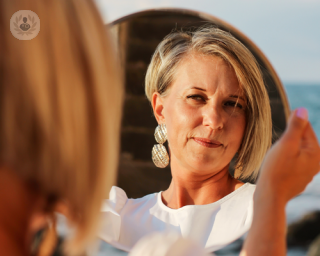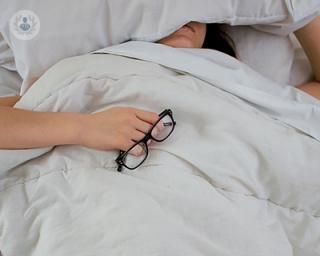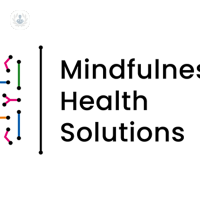What is self-esteem and personal development?
Self-esteem is the measure of your own self-worth, self-love, and self-acceptance. It evolves during the formative years of childhood and adolescence when individuals compare their authentic selves to an aspirational "ideal self" and to the standards set by those around them.
Personal development encompasses deliberate actions and transformative changes we undertake in our lives to cultivate more constructive behaviours and attitudes than those we currently possess.

What does low self-esteem look like?
Sustaining a healthy self-esteem paves the way for increased happiness and self-assurance. Conversely, when self-esteem is lacking, people often exhibit the following characteristics:
- Diminished self-confidence and lack of belief in yourself
- Reluctance to express opinions for fear of rejection or a perception that your thoughts hold less value than those of others
- Sense of unworthiness and feeling undeserving of positive things
- Dependency on external approval and an overreliance on validation from others
- Persistent feelings of unhappiness
- Easily demotivated and difficulty in maintaining enthusiasm and focus
- Experiencing heightened anxiety or nervousness
- Feeling guilty or unattractive without a real cause
Why does low self-esteem occur?
Low self-esteem can stem from various sources, including a stagnancy in some areas of life or as a consequence of abusive relationships. In addition, emotional disorders like depression or anxiety, specific phobias, or sleep disorders and their disruption to daily routines can also lead to low self-esteem.
Can low self-esteem be prevented?
To foster and preserve healthy self-esteem, retraining yourself to counteract negative thought patterns is key. Observing your thoughts and their structures can help to deconstruct and rationalise them, eventually allowing you to break free from repetitive negative self-talk to focus on positive affirmations.
Realistic self-assessment is crucial, recognising that perfection is unattainable but constructive self-critique can lead to personal growth. When confronting difficult or disappointing situations, accepting the key facts and focusing on positive changes you can make can help you to move forward and make progress.
Setting achievable goals contributes to overall wellbeing as small steps towards your final objective are achieved. When setbacks occur, self-blame and negative self-talk should be avoided. In contrast, constructive and objective analysis of the situation can allow you to form your next positive steps to achieve your goals. Comparing yourself to others should also be avoided, as it can lead to unhelpful self-criticism or a loss of momentum in your journey to achieving your own goals.
What strategies are involved in personal development?
Various exercises and strategies can be helpful in boosting a person's self-esteem and encouraging their personal development. These include:
- Positive self-affirmations: repeatedly reinforcing positive beliefs about oneself
- Self-reflection: acknowledging and appreciating your value
- Professional support from a psychologist or therapist
- Mindfulness and meditation to enhance self-awareness and self-compassion
- Self-help resources: reading books or other resources like podcasts which are dedicated to personal growth
Improving your self-esteem not only enhances personal wellbeing but can also extend a positive influence into many other areas of life, such as relationships, work and overall fulfilment.
Personal development
What is self-esteem and personal development?
Self-esteem is the measure of your own self-worth, self-love, and self-acceptance. It evolves during the formative years of childhood and adolescence when individuals compare their authentic selves to an aspirational "ideal self" and to the standards set by those around them.
Personal development encompasses deliberate actions and transformative changes we undertake in our lives to cultivate more constructive behaviours and attitudes than those we currently possess.

What does low self-esteem look like?
Sustaining a healthy self-esteem paves the way for increased happiness and self-assurance. Conversely, when self-esteem is lacking, people often exhibit the following characteristics:
- Diminished self-confidence and lack of belief in yourself
- Reluctance to express opinions for fear of rejection or a perception that your thoughts hold less value than those of others
- Sense of unworthiness and feeling undeserving of positive things
- Dependency on external approval and an overreliance on validation from others
- Persistent feelings of unhappiness
- Easily demotivated and difficulty in maintaining enthusiasm and focus
- Experiencing heightened anxiety or nervousness
- Feeling guilty or unattractive without a real cause
Why does low self-esteem occur?
Low self-esteem can stem from various sources, including a stagnancy in some areas of life or as a consequence of abusive relationships. In addition, emotional disorders like depression or anxiety, specific phobias, or sleep disorders and their disruption to daily routines can also lead to low self-esteem.
Can low self-esteem be prevented?
To foster and preserve healthy self-esteem, retraining yourself to counteract negative thought patterns is key. Observing your thoughts and their structures can help to deconstruct and rationalise them, eventually allowing you to break free from repetitive negative self-talk to focus on positive affirmations.
Realistic self-assessment is crucial, recognising that perfection is unattainable but constructive self-critique can lead to personal growth. When confronting difficult or disappointing situations, accepting the key facts and focusing on positive changes you can make can help you to move forward and make progress.
Setting achievable goals contributes to overall wellbeing as small steps towards your final objective are achieved. When setbacks occur, self-blame and negative self-talk should be avoided. In contrast, constructive and objective analysis of the situation can allow you to form your next positive steps to achieve your goals. Comparing yourself to others should also be avoided, as it can lead to unhelpful self-criticism or a loss of momentum in your journey to achieving your own goals.
What strategies are involved in personal development?
Various exercises and strategies can be helpful in boosting a person's self-esteem and encouraging their personal development. These include:
- Positive self-affirmations: repeatedly reinforcing positive beliefs about oneself
- Self-reflection: acknowledging and appreciating your value
- Professional support from a psychologist or therapist
- Mindfulness and meditation to enhance self-awareness and self-compassion
- Self-help resources: reading books or other resources like podcasts which are dedicated to personal growth
Improving your self-esteem not only enhances personal wellbeing but can also extend a positive influence into many other areas of life, such as relationships, work and overall fulfilment.


Joining up the map: Integrative psychotherapy explained
By Dr Jeremy Slaughter
2024-11-20
Leading chartered clinical and occupational psychologist Dr Jeremy Slaughter explains how integrative psychotherapy can help in a variety of areas of personal development. See more


Self-esteem: where does low self-belief stem from?
By Dr Nikki Scheiner
2024-11-19
We spoke with top London psychologist Dr Nikki Scheiner who is the founder and clinic director of The Functional Symptoms Recovery Clinic on Harley Street, to find out what causes low self-esteem, what causes it and why it can be so detrimental. See more


Self-esteem and how it affects somebody's life
By Miss Kiki Iordanidou
2024-11-19
Self-esteem is a concept referring to how we perceive and value ourselves. It’s a fundamental aspect of our emotional and psychological well-being, influencing how we think, feel and act in everyday life. Self-esteem can range from high (positive self-view) to low (negative self-view), and it significantly affects multiple areas of life. See more


Is it normal to always feel tired?
By Dr Alka Patel
2024-11-18
Revered lifestyle medicine physician, longevity coach and general practitioner Dr Alka Patel gives invaluable, expert advice on how to reduce tiredness and improve sleep habits in this informative article. See more
Experts in Personal development
-
Dr Edward Bloomfield
PsychologyExpert in:
- Anxiety
- Depression
- Mental disorders
- Low self-esteem
- Post-traumatic stress disorder (PTSD)
- Personal development
-
Dr Mary-Anne Smyth
PsychologyExpert in:
- Low self-esteem
- Burnout
- Anxiety
- Depression
- Personal development
- Grief
-
Dr Tim Ojo
PsychiatryExpert in:
- Personal development
- Mood disorders
- Relationship counselling
- Work stress
- Depression
- Anxiety
-
Dr Dimple Devadas
PsychologyExpert in:
- Positive psychology
- Mindfulness techniques
- Coaching (personal development)
- Personal development
- Obesity
- Work stress
-
Dr Jugjinder Singh
PsychiatryExpert in:
- Childhood depression
- Paediatric psychiatry
- Anxiety
- Phobias
- Self-harm
- Personal development
- See all

Mindfulness Health Solutions
Mindfulness Health Solutions
PO Box 10794, Nottingham NG1 9LX
No existe teléfono en el centro.
By using the telephone number provided by TOP DOCTORS, you automatically agree to let us use your phone number for statistical and commercial purposes. For further information, read our Privacy Policy
Top Doctors

London International Patient Services (LIPS)
London International Patient Services (LIPS)
5 Devonshire Place, W1G 6HL
No existe teléfono en el centro.
By using the telephone number provided by TOP DOCTORS, you automatically agree to let us use your phone number for statistical and commercial purposes. For further information, read our Privacy Policy
Top Doctors

Flint Healthcare
Flint Healthcare
8, Hunns Mere Way, Woodingdean Office Campus, Brighton
No existe teléfono en el centro.
By using the telephone number provided by TOP DOCTORS, you automatically agree to let us use your phone number for statistical and commercial purposes. For further information, read our Privacy Policy
Top Doctors
-
Mindfulness Health Solutions
PO Box 10794, Nottingham NG1 9LX, NottinghamExpert in:
- Anxiety
- Panic attacks
- Autism
- ADHD
- Bipolar disorder
- Post-traumatic stress disorder (PTSD)
-
London International Patient Services (LIPS)
5 Devonshire Place, W1G 6HL, W1G Marylebone LondonExpert in:
- Orthopaedic spinal surgery
- Plastic surgery, reconstructive and aesthetics
- Hand and wrist
- Otolaryngology
- Foot and ankle
- Knee
-
Flint Healthcare
8, Hunns Mere Way, Woodingdean Office Campus, Brighton , BrightonExpert in:
- Depression
- Psychosis
- Psychiatry
- ADHD
- Bipolar disorder
- Post-traumatic stress disorder (PTSD)
- See all
- Most viewed diseases, medical tests, and treatments
- Migraine
- Maternal mental health
- Pelvic pain syndrome
- Seizures
- Parkinson's disease
- Expert witness
- Anxiety
- Long Covid
- Medical cannabis prescription
- Stress







